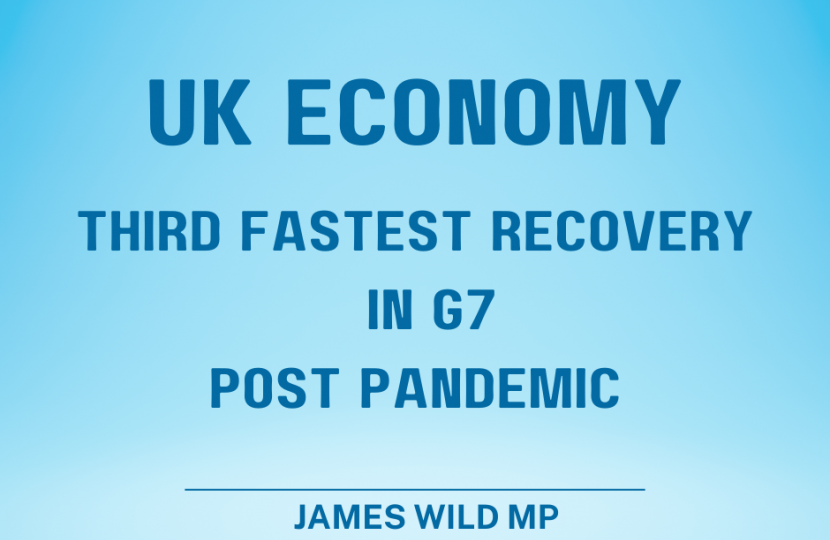
James Wild MP - Weekly Column
"When the facts change, I change my mind". Well, for those politicians who've spent the last year repeatedly saying that the UK economy performed worse than other major countries and was smaller than pre-Covid it is time to follow that advice. As it turns out that the claim was not true - in fact the UK economy has fared better than originally thought and recovered faster.
What’s changed? In the last few days, newly revised figures from the Office of National Statistics on post pandemic economic growth show that in fact the British economy had the third fastest recovery in the G7 group of major economies behind only the US and Canada. As the Chancellor has said, the UK economy has now outperformed growth expectations leading to the OECD and IMF revising up their growth forecasts. The ONS say the earlier figures were always subject to revision but there’s no mistaking that this is a major change.
The post-pandemic growth comes on top of progress since 2010 including getting nearly 4 million more people into work, 2 million more disabled people in work since 2013, and record numbers of people on payroll. While the new data is welcome news there is more to do to unlock growth and improve productivity.
That’s why in March, the Budget focused on a £2 billion plan for jobs, encouraging business investment, and a major expansion in free childcare to help remove barriers to work. In particular, there are 2.5 million people who are economically inactive because of long-term sickness and disability. Yet one in five of those people wants to work in the future if the right job and support were available. Plans published this week aim to help achieve that so more people benefit from the opportunities work brings – taking advantage of changes in home working, adapting job roles and workplaces – financial, but physical and mental health benefits too.
Despite the economy recovering sooner than it was thought to be the case, people continue to face higher costs. Getting inflation down will help ease pressures and the plan to halve inflation is working with the Bank of England is forecasting inflation will be around 5 per cent by the end of the despite expecting a slight rise in the figures this month.
In the meantime, people across North West Norfolk continue to get support from the government with higher energy and other bills. Contrary to a claim I read in a councillor column last week, the government has put in place a package worth £94 billion last year and this year to help with higher energy and other bills and payments to the poorest, pensioners, and disabled people. It was also odd not to mention Norfolk’s Household Support Fund including the Norfolk Assistance Scheme – funded with £13.4 million from central government – which supports vulnerable people.
By focusing on growing the economy, helping people into work, and supporting people facing higher costs, the aim is to give people that financial security for them and their families.
First published in Lynn News, 8 September 2023

